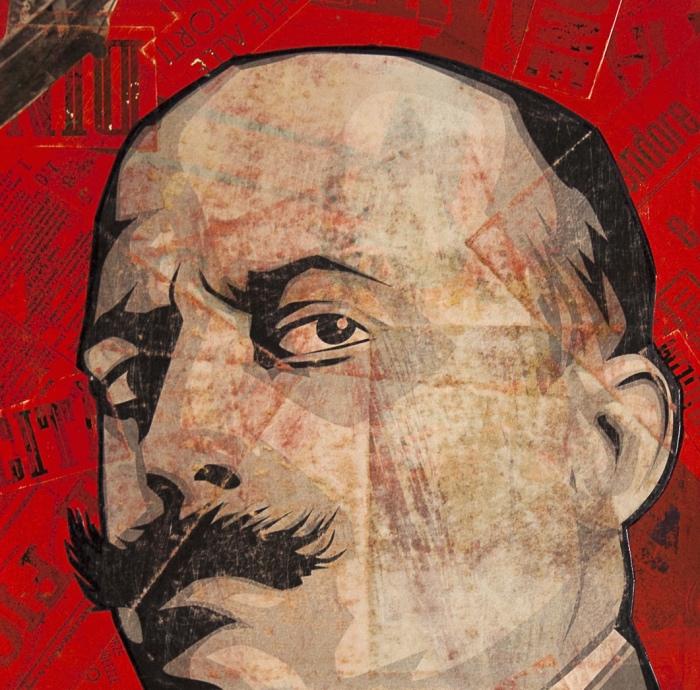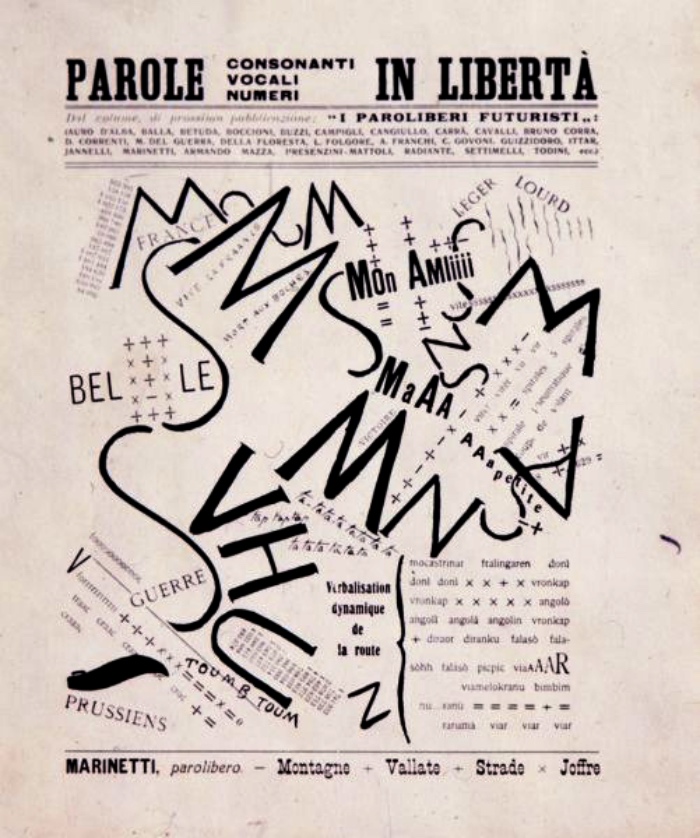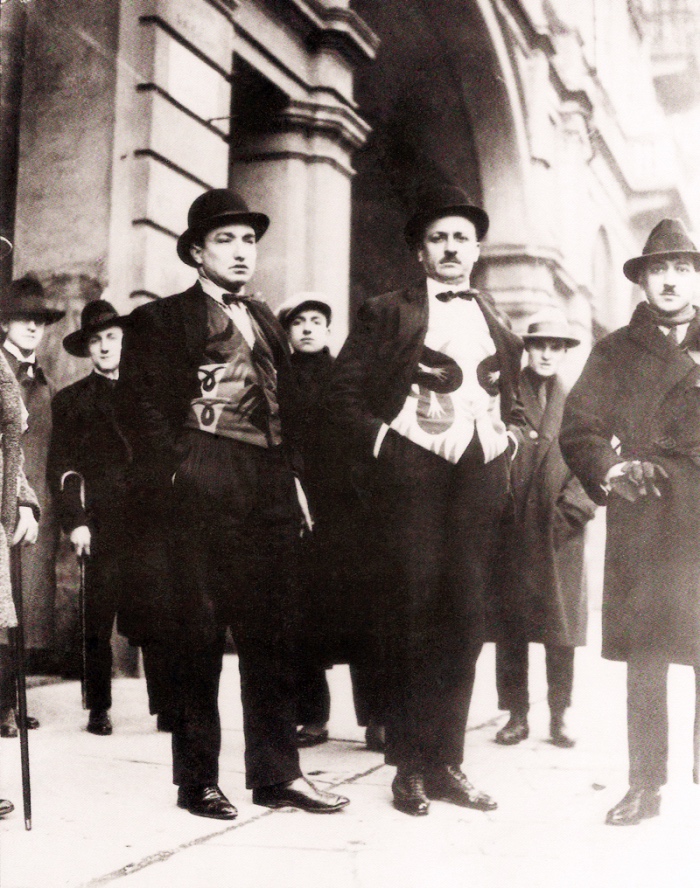Filippo Tommaso Marinetti, leader of Futurism

Filippo Tommaso Marinetti, leader of Futurism
Filippo Tommaso Marinetti. Poet, novelist, dramatist, Marinetti was the leader of Italian Futurism, the main movement of revolutionary avant-garde whose main features I summarized in a special post.
He was born in Alexandria, Egypt, and studied in Paris, Pavia and Genoa.
In 1905 he founded the magazine Poesia (Poetry), a tool for Italian Symbolism, which in 1909 served as the official organ for a new poetic movement, Futurism.

Filippo Tommaso Marinetti was a strong supporter of the Italian involvement in World War I, because he was sure the struggle against everything old and obsolete couldn’t be a mere academic exercise, but it should transform into political action.
When Italy entered the Great War, Marinetti enlisted as a volunteer, and after the war he was awarded two purple hearts.
All his life was an incessant research of a language that could conform with the modern man.
Speed, words in freedom, war, and revolution are the words that best represent the life of Marinetti, who was called “caffeina d’Europa” (caffeine of Europe), because he was always ready to excite the Old Continent with some novelties.
In 1919 the Partito Politico Futurista (the Futurist Political Party) founded by Marinetti himself, merged with Mussolini’s Fasci di Combattimento (Italian Fasci of Combat).
Marinetti joined Mussolini’s Fascism, even thought a year later he distanced himself from it, but not totally.
In fact, in 1925 Marinetti signed the Manifesto of the Fascist Intellectuals, and became a notable member of the Reale Accademia d’Italia (the Royal Academy of Italy).

In the middle with a futurist Marinetti waistcoats waistcoat.
Follow me on:
About me
In this blog, I don't explain the history of art — I tell the stories that art itself tells.


